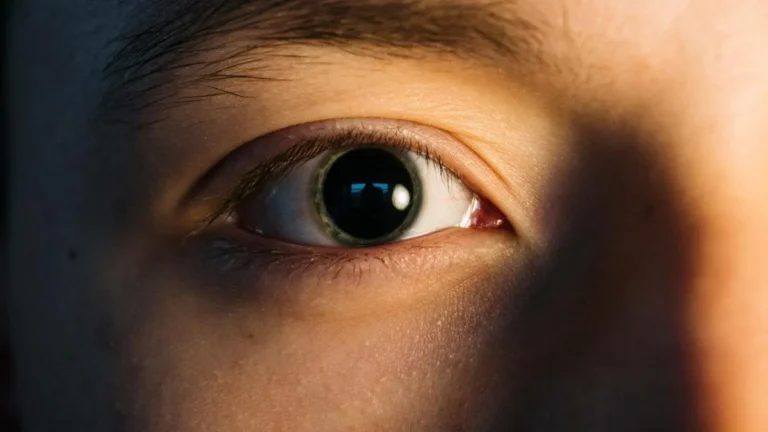Asthma Medications for Children with Allergies: 5 Effective Treatments to Manage Respiratory Health
Managing asthma in children can feel like a constant battle, especially when allergies are thrown into the mix. If your child has both asthma and allergies, you know that finding the right asthma medications for children with allergies can be the key to making sure they stay healthy and happy. I’ve worked with countless families in my career as an asthma expert, and I’ve seen firsthand how the right treatment plan can truly change a child’s life. So, let’s dive into this important topic, break down the medications, and talk about how you can manage your child’s asthma and allergies together.
Asthma and Allergies: The Dynamic Duo
Before we dive into the specific asthma medications for children with allergies, let’s take a step back and understand the connection between asthma and allergies. Asthma is essentially a chronic condition that causes inflammation and narrowing of the airways, leading to difficulty breathing, wheezing, and coughing. On top of that, allergies are when your immune system reacts to harmless substances like pollen, dust, or pet dander as if they’re dangerous.
In children, allergies are often the trigger for asthma attacks. Imagine this: your child is outside, enjoying a sunny day, and suddenly they start sneezing, then coughing, and soon after, you’re dealing with an asthma flare-up. It’s not uncommon for kids with asthma to have allergic reactions to things like pollen or pet dander, which makes managing both asthma and allergies all the more important.
Asthma Medications for Children with Allergies: What Works Best?

Now, you might be wondering, “Okay, Bianca, what do I need to know about asthma medications for children with allergies?” Great question! There are a variety of medications available, but they mainly fall into two categories: long-term control medications and quick-relief (rescue) medications. Both play important roles in helping your child manage their asthma and allergies.
Long-Term Control Medications: Keeping Things in Check
Long-term control medications are typically taken daily, and they work to prevent asthma symptoms from even starting. These medications are meant to reduce the inflammation and swelling in the airways, making it easier for your child to breathe. Here are a few of the top long-term medications you might encounter:
Inhaled Corticosteroids (ICS)
These are the gold standard when it comes to managing asthma, and they’re especially effective for children with allergies. They work by reducing inflammation in the airways, helping to prevent asthma attacks before they happen. I’ve seen so many kids who’ve experienced significant improvement once they’ve started on inhaled corticosteroids. Sure, they might not give instant relief, but they keep the symptoms in check day-to-day, making a world of difference for most kids.
Leukotriene Modifiers
Leukotrienes are substances in your body that cause inflammation and narrowing of the airways, and these medications help block those substances. In kids with both asthma and allergies, leukotriene modifiers can be a great option. I had a young patient named Sam who was always struggling with seasonal asthma flare-ups during springtime because of all the pollen. After starting on a leukotriene modifier, he was able to play outside during his favorite time of year without the constant fear of an asthma attack.
Immunotherapy (Allergy Shots)
Immunotherapy is a bit of a long-term commitment, but it can work wonders for kids with severe allergies. The idea behind allergy shots is simple: gradually desensitize your child’s immune system to specific allergens over time. It’s a treatment that requires regular visits to the doctor, but many families I’ve worked with have seen a drastic reduction in both asthma symptoms and allergic reactions after a year or two.
Quick-Relief Medications: Fast Acting for Sudden Symptoms

While long-term medications keep things under control, sometimes your child might experience a sudden asthma attack or allergic reaction. That’s where quick-relief medications come in. These are the ones you’ll turn to when your child is having trouble breathing or struggling with allergy symptoms.
Short-Acting Beta Agonists (SABA)
Short-acting beta agonists, like albuterol, are the go-to rescue inhalers when your child is having a hard time breathing. These medications work fast, opening up the airways and giving instant relief. It’s super important for children with asthma to always have their rescue inhaler on hand. I always remind parents: never leave home without it!
Antihistamines
Antihistamines are usually the first choice when it comes to treating allergic reactions. While they don’t directly address asthma symptoms, they can help control allergy symptoms like sneezing, itching, and congestion. Many antihistamines are available over-the-counter, and for some kids, taking them daily during allergy season can make a huge difference. My son used to be terribly allergic to pollen, and taking an antihistamine every morning before school made those sneezing fits a thing of the past.
Troubleshooting Common Issues with Asthma Medications

Even with the right asthma medications for children with allergies, things don’t always go smoothly. I’ve worked with so many parents who’ve run into issues with their child’s asthma management, so let’s talk about some common hiccups and how to address them.
Medication Non-Compliance
I get it—getting kids to take their medicine isn’t always easy. Whether it’s the taste, the hassle, or the fear of inhalers, there are many reasons kids might resist. One thing that has worked for families I’ve worked with is getting kids involved in the process. Let them pick out their inhaler (some come in fun colors and designs!), or even give them the responsibility of taking it at certain times of day. I know a mom who turned it into a game, rewarding her daughter for remembering to use her inhaler correctly.
Side Effects of Medications
Sometimes medications come with side effects. For example, inhaled corticosteroids can cause a dry mouth or a sore throat. I always remind parents to encourage their kids to rinse their mouths after using their inhaler to avoid these issues. Another tip is to have a chat with your child’s doctor about adjusting the dosage or trying a different medication if side effects become too much.
Environmental Triggers
Even with the best medications, allergens in the environment can still trigger asthma symptoms. I once had a family whose child’s asthma was pretty well controlled, but as soon as they went to visit their grandparents with three indoor cats, the symptoms would flare up. If you’re noticing this pattern, consider limiting exposure to triggers. It might be worth using air purifiers in your home, keeping pets out of certain rooms, and washing bedding regularly to reduce dust mites.
Real-Life Case Studies: Success Stories with Asthma Medications for Children with Allergies

I’ve seen so many kids who were struggling with asthma and allergies turn things around with the right combination of medications and management strategies. Here are a couple of success stories to show how it can all come together:
Case Study 1: Max’s Allergy-Free Future
Max was a 7-year-old boy with asthma that was triggered by dust mites and pet dander. Despite being on daily medications, he was still experiencing flare-ups. After adjusting his medication plan to include a combination of inhaled corticosteroids and leukotriene modifiers, along with allergy shots, Max’s symptoms became much more manageable. His parents also made changes to their home, such as using allergen-proof bedding covers and limiting exposure to pets. Max is now able to participate in soccer without worrying about asthma attacks.
Case Study 2: Lily’s Seasonal Asthma Relief
Lily had always struggled with seasonal allergies, and they would often trigger her asthma. After working with her healthcare provider to start a daily antihistamine during allergy season, combined with an inhaled corticosteroid, Lily was able to enjoy outdoor play without suffering from asthma flare-ups. Her mom shared with me how much her confidence grew when she could breathe freely during her favorite spring activities.
Key Takeaways: Managing Asthma Medications for Children with Allergies
- Start early: The earlier you begin asthma management, the better your child’s long-term outcomes will be.
- Follow medication plans: Consistent use of medications is key to preventing asthma flare-ups and controlling allergy symptoms.
- Identify triggers: Understanding your child’s specific triggers and avoiding them can greatly reduce asthma episodes.
- Consult regularly with healthcare providers: Keeping an open line of communication with your child’s doctor is crucial for adjusting medications and treatment plans.
5 FAQs About Asthma Medications for Children with Allergies
- How long does it take for asthma medications to work? It depends on the medication. Inhaled corticosteroids take time to build up in the system, while quick-relief medications work within minutes.
- Can asthma medications cure asthma? No, asthma medications help manage symptoms, but they don’t cure asthma. The goal is to minimize flare-ups and improve quality of life.
- Are there any natural remedies for asthma? Some parents turn to natural remedies like honey or essential oils, but they should never replace prescribed medications. Always discuss natural remedies with a healthcare provider.
- What should I do if my child misses a dose of their medication? If your child misses a dose, follow the instructions on the medication label, and contact their doctor if you’re unsure about what to do.
- What lifestyle changes can help my child’s asthma? Limiting exposure to allergens, using air purifiers, and maintaining a healthy weight can all help improve asthma control.
Appendix
References
Disclaimer
This article is for informational purposes only and should not be considered medical advice. Always consult a healthcare professional before starting or adjusting any treatment plan.
Call to Action
Need personalized advice for your child’s asthma and allergies? Reach out today, and let’s create a plan that works for your child’s needs!

Bianca Nala is a compassionate Nurse Practitioner with a strong background in primary and respiratory care. As a health writer for Healthusias.com, she combines her clinical expertise with a talent for clear, relatable storytelling to help readers better understand their health. Bianca focuses on topics like asthma, COPD, chronic cough, and overall lung health, aiming to simplify complex medical topics without losing accuracy. Whether she’s treating patients or writing articles, Bianca is driven by a single goal: making quality healthcare knowledge accessible to everyone.







